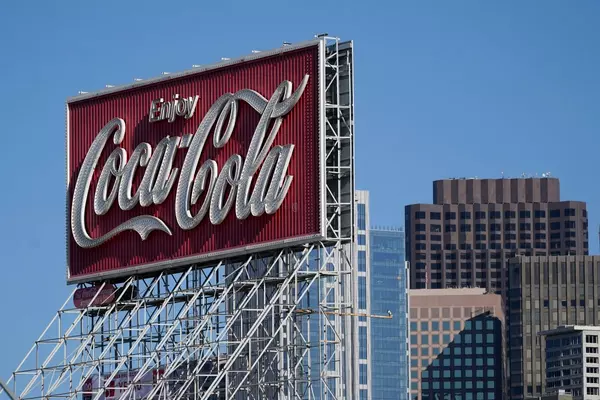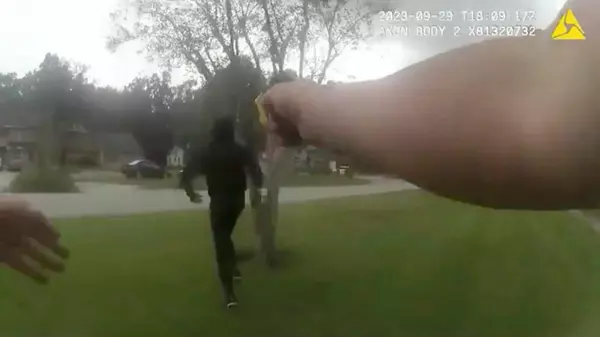
Former Prime Minister Boris Johnson has faced two days of questioning at the Covid inquiry - and his answers have illicited more questions from our readers.
Mr Johnson was heckled as he arrived at the hearing this morning, having already been booed by crowds of bereaved families on Wednesday.
During his first day of testimony, Mr Johnson’s apology to the nation was interrupted by four people who staged a protest in the hearing room.
In Wednesday’s hearing, Mr Johnson admitted the pandemic’s impact on the NHS had “bewildered” him. He also acknowledged the government’s policy appeared “incoherent” on the timing of actions in light of the graph in March 2020 suggesting the NHS could be overwhelmed.
It came after an explosive two months at the inquiry, which heard Mr Johnson was “obsessed with older people accepting their fate” and dying from the virus; entrusted his top adviser Dominic Cummings with too much power; and wanted to “let the bodies pile high” to avoid imposing a second Covid lockdown.
As we hear from the man in charge of the UK’s Covid response, I’ve been answering questions from readers about the former prime minister and the Covid inquiry.
Here are nine questions from Independent readers – and my answers from the “Ask Me Anything” event.
Q: What do you think the chances of Johnson making a proper return to politics are? And could the Covid inquiry damage any plans he might have for further public life?
SS7890
A: I don’t think Boris Johnson is likely to return to politics. Whatever your view of the government’s actual policies on coronavirus, his behaviour seemed erratic and un-reassuring to too many people.
He retains some support among grassroots members of the Conservative Party, but probably not as much as he thinks, and the main obstacle to a return remains the parliamentary party.
Tory MPs never supported him strongly – they turned to him in desperation in 2019 to get them out of a deadlocked parliament. I think the chances of their turning to him again in some future crisis are extremely low.
Q: Who’s going to come off worse... Cummings, Hancock, Gove or Johnson?
Adam679
A: One of the reasons I think the inquiry is a bad idea is that I don’t think it should be about apportioning blame. The important thing is to learn lessons.
And one of the worst responses to politics is to think that politicians with whom one disagrees should go to jail. That is pure “lock her up” Trumpism.
Q: Realistically, did we have a better person who could be in charge than Boris? Only Jacob Rees-Mogg, but a good job was done. A lot of countries waited too long and then followed Great Britain.
polarbear
A: I think most recent prime ministers would have handled the problem better than Boris Johnson, because they would have taken it more seriously earlier and would have got to grips with the detail.
As for current or recent ministers, I think Rishi Sunak would have been better, but he had only just moved up from the most junior cabinet position (chief secretary to the Treasury) at the start of the pandemic.
Q: Could Boris or others be charged with misconduct in public office? If so, who can bring this charge forward?
LoneFish
A: Not reading a document, taking a day off and not attending a meeting are not serious enough in themselves in my view to warrant anything like you suggest. The breach of coronavirus regulations was dealt with by penalty notices (and I didn’t agree with the ones issued to Johnson and Sunak). Hancock’s breach of guidelines was dealt with by his resignation as a minister.
Misconduct in public office is an antique charge that would need to be revived only if other sanctions were not available. It is usually wheeled out by people to mean, “I disagree with what this politician did very strongly indeed,” and is only one step down from, “They should go to jail.”
I don’t think the government handled the pandemic particularly well, but neither do I think they did so particularly badly.
Q: Will the enquiry report its findings before the next General Election?
ParcelOfRogue
A: I imagine that you have already made up your mind about its findings! It is a good question, though, because I am not sure what the timetable is for interim reports. The inquiry will go on for years, but the current module (“Core UK decision-making and political governance”) has nearly finished public hearings. I will get back to after this AMA if I can find out anything.
Q: Did Boris Johnson send the WhatsApp messages to himself? Surely there must be other phones which sent and received the messages from Johnson’s phone? Or does deleting messages on one phone automatically delete them on other phones?
Hectorshouse
A: I would have thought all WhatsApp messages are saved on servers, but I think this issue is a distraction, not least because I don’t think the inquiry should be happening at all, but also because we know what the issues are, and the idea that “the truth” is somehow concealed in secret deleted messages is always wrong.
Q: How much is costing us tax players to fund Johnson’s legal advice during the inquiry?
Blue63
A: Quite a lot, but I don’t think the inquiry should be happening at all.
Q: Would it not be fair to say the the parliamentry Conservatives were in thrall to US libertarianism when it came to the pandemic?
Jim987
A: I think that is a peculiar way to describe the views of elected representatives in the House of Commons! Some MPs who represented the people supported “zero covid”; others were opposed to lockdowns altogether; most were in between, and parliament rightly had a say in deciding the policy as it should in a democracy.
If anything, it was a problem that MPs were unable to scrutinise legislation sufficiently – there were cases of laws being passed and then voted on in parliament, and of laws being passed within a few hours.
Q: Shouldn’t we expect Sunak to want to remain PM for as long as possible? In other words, an election in winter 2024?
Matthew Redgrave
A: That is the default assumption in politics. Harold Wilson is the only recent clear example of a prime minister giving up office before they had to. Although Baldwin and Salisbury from longer ago also gave up voluntarily, probably because of illness in all cases. Tony Blair is an interesting case, in that he managed to leave before the mechanisms for ejecting him were actually triggered.
I think Rishi Sunak will probably want to stay in office nearly as long as legally possible. He may go for the last possible date for a general election, in January 2025, although that would probably be too unpopular, so I agree with Matthew that October or November 2024 is more likely.
Logically, with Sunak’s political problems getting worse month by month, he ought to go for an early election so that he can save as many seats as possible from the deluge. But prime ministers want to hold on, and they want to believe that things will eventually get better even as they continue to get worse.
These questions and answers were part of an ‘Ask Me Anything’ hosted by John Rentoul at 11am GMT on Thursday 7 December Some of the questions and answers have been edited for this article. You can read the full discussion in the comments section of the original article.
John also sends a weekly Commons Confidential newsletter exclusive to Independent Premium subscribers, taking you behind the curtain of Westminster. If this sounds like something you would be interested in, head here to find out more.







